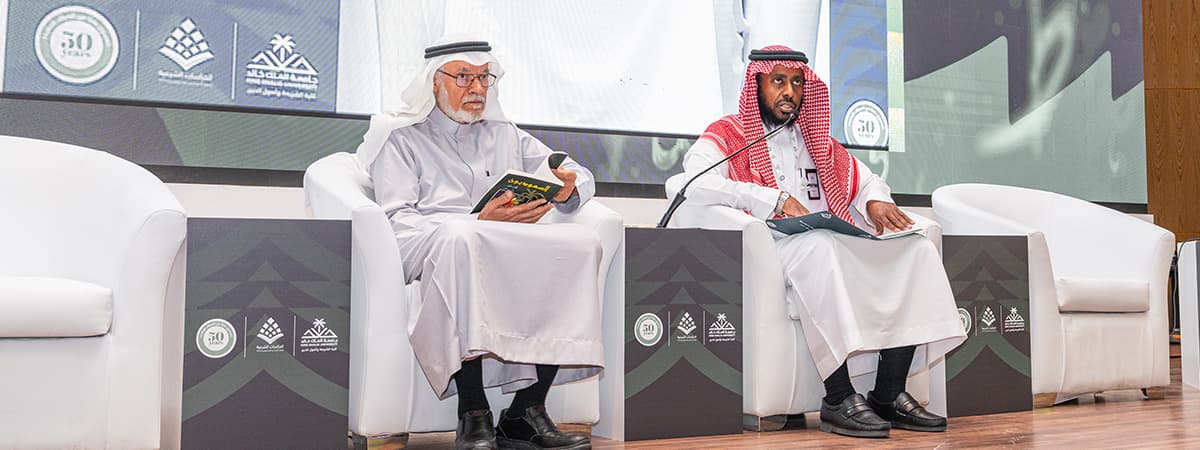At King Khalid University’s International Conference, marking fifty years since the founding of the College of Sharia and Religious Principles, former Minister of Labor and Social Affairs, Dr. Ali bin Ibrahim Al-Namlah, took center stage to address a key session. Titled “Driving Privacy and Development,” the discussion examined Saudi Arabia’s unique socio-cultural identity and its potential role in the nation’s future development, particularly in light of Vision 2030.
Moderated by Dr. Ahmad bin Abdullah Al-Hosaini, Vice Dean of the College and Chair of the Conference’s Scientific Committee, the session attracted a significant audience, eager to hear insights from Al-Namlah, who is also a professor at Imam Muhammad bin Saud Islamic University. The session opened with a brief introduction to Al-Namlah’s extensive career, highlighting his academic achievements and prominent roles in Saudi government and society. Notably, Al-Namlah earned his bachelor's degree in Arabic, followed by a master’s and Ph.D. in Libraries and Information. His distinguished career includes serving as Minister of Labor and Social Affairs and a member of the Shura Council, alongside his current position as Chairman of the Board for Al-Dar Encyclopedia Charity.
In his remarks, Dr. Al-Namlah emphasized the concept of “driving privacy,” explaining that Saudi Arabia possesses unique elements that empower it to offer a distinctive model for global development. Among the factors he cited were the presence of Islam’s holiest sites in Mecca and Medina, the country’s flag bearing the inscription of the Islamic creed, and the leadership’s commitment to serving the Holy Mosques. These attributes, according to Al-Namlah, enhance Saudi Arabia’s standing on the international stage.
Turning to the role of Sharia studies in development, Dr. Al-Namlah sought to dispel the notion that religious studies are disconnected from broader economic and social progress. He underscored the importance of integrating Sharia with development goals, aligning Islamic values with national and international priorities. “There’s a misconception that Sharia studies are only concerned with jurisprudence and theology,” Al-Namlah said. “In reality, they play a vital role in shaping developmental frameworks, and they should adapt to promote values of sustainability and growth.”
He also addressed the global phenomenon of “spiritual anxiety,” which he linked to rising atheism, estimating that approximately 1.3 billion people worldwide identify as atheists. Al-Namlah urged academic and religious institutions to seriously engage with this issue, noting that atheism in the Arab world is often superficial, driven more by hedonism than philosophical conviction.
Concluding the session, Dr. Al-Namlah called on scholars and religious leaders to present intellectual frameworks that address contemporary challenges while reinforcing sustainable development. He cautioned against politicizing religion for short-term political gains, emphasizing that Islam and politics are intertwined, but politics should always be a means, not an end.
The session ended with a robust Q&A, where academics and researchers engaged with Al-Namlah’s proposals. Many attendees echoed his sentiment that integrating Sharia studies with development strategies is essential to achieving Saudi Arabia’s ambitious Vision 2030 goals.

